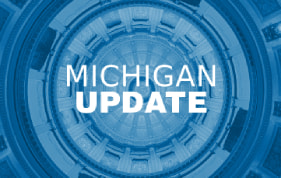Medicaid was designed to serve low-income and vulnerable individuals, but it operates differently in the U.S. territories than it does in the states. While the federal share varies based on per capita income for each state, federal funding for Medicaid in the territories is subject to a statutory cap and a fixed federal matching rate. Following recent hurricanes, typhoons and the North Korean missile crisis, which have damaged infrastructure and limited tourism, the fiscal issues for territories have been exacerbated. This is in addition to the larger share of people living in poverty that are in fair or poor health in the territories.
In a recently published issue brief, Kaiser Family Foundation’s Program on Medicaid and the Uninsured Policy Analyst Cornelia Hall and Associate Director Robin Rudowitz, along with HMA Principal Kathy Gifford, surveyed and interviewed territory Medicaid officials to identify the key issues and trends in the programs for the territories.
Key findings include:
- The reliance on Affordable Care Act funds for Medicaid programs, which are set to expire in September.
- Enrollment increases due to recent hurricanes.
- Benefits and delivery systems differ in the territories.
- Provider shortages.
View below for the full issue brief.




